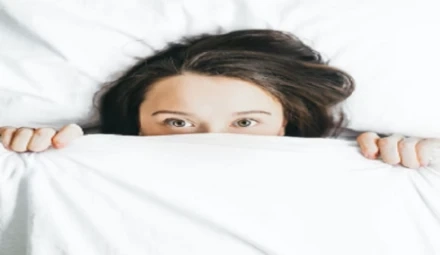Cannabis has been a topic of extensive discussion in recent years, with increasing legalization and its potential therapeutic applications gaining attention. One area that has drawn significant interest is its impact on sleep patterns and insomnia. While some individuals report improved sleep with cannabis use, others experience disruptions. Understanding the complexities of how marijuana affects sleep can shed light on its potential benefits and drawbacks in managing sleep disorders.
The Relationship Between Cannabis and Sleep:
Sleep is a crucial aspect of overall health and well-being, with inadequate sleep linked to various health issues such as obesity, cardiovascular disease, and mental health disorders. Cannabis, with its active compounds like THC (tetrahydrocannabinol) and CBD (cannabidiol), interacts with the endocannabinoid system in the body, which plays a role in regulating sleep-wake cycles.
THC, the psychoactive component of cannabis, is known to have sedative effects and may help in falling asleep faster. It interacts with receptors in the brain involved in sleep regulation, potentially reducing the time it takes to fall asleep. However, THC can also suppress REM (rapid eye movement) sleep, which is essential for cognitive function and emotional regulation. This suppression may result in reduced dream recall and less restorative sleep.
On the other hand, CBD, a non-psychoactive compound, has shown promise in managing anxiety and stress, which are common contributors to insomnia. By reducing anxiety levels, CBD may indirectly improve sleep quality in individuals struggling with sleep disturbances.
The Impact of Cannabis on Insomnia:
Insomnia, characterized by difficulty falling asleep or staying asleep, affects millions of people worldwide. While some turn to pharmaceutical sleep aids, others explore alternative remedies like cannabis. Research on the efficacy of cannabis in treating insomnia is still evolving, with mixed findings.
Some studies suggest that cannabis may provide short-term relief for insomnia symptoms by promoting relaxation and reducing anxiety. However, long-term use may lead to tolerance, requiring higher doses to achieve the same effects, and potential withdrawal symptoms upon discontinuation.
Moreover, the effects of cannabis on sleep vary depending on factors such as dosage, strain, and individual differences in metabolism and tolerance. What works for one person may not have the same effect on another, making personalized treatment approaches essential.
Potential Risks and Considerations:
While cannabis holds promise as a sleep aid for some individuals, it\'s essential to weigh the potential risks and considerations. Chronic cannabis use has been associated with cognitive impairment, memory problems, and dependency issues. Additionally, smoking cannabis may pose respiratory risks similar to tobacco smoking.
Furthermore, the legal landscape surrounding cannabis varies across jurisdictions, with regulations governing its production, distribution, and use. Individuals considering cannabis as a sleep aid should familiarize themselves with local laws and consult healthcare professionals for guidance.
Alternative Approaches to Improving Sleep:
For those wary of the potential risks associated with cannabis or seeking alternative solutions, various evidence-based strategies can promote better sleep:
Establishing a consistent sleep schedule: Going to bed and waking up at the same time each day helps regulate the body\'s internal clock.
Creating a relaxing bedtime routine: Engaging in calming activities like reading, meditation, or gentle stretching can signal to the body that it\'s time to wind down.
Limiting exposure to screens: The blue light emitted by electronic devices can interfere with melatonin production, making it harder to fall asleep. Limit screen time before bedtime to promote better sleep.
Practicing relaxation techniques: Techniques such as deep breathing exercises, progressive muscle relaxation, and mindfulness meditation can help reduce stress and promote relaxation.
Seeking professional help: If insomnia persists despite trying various self-help strategies, consulting a healthcare provider or sleep specialist may be beneficial. They can assess underlying causes of sleep disturbances and recommend appropriate treatments.
Conclusion:
Cannabis remains a topic of ongoing research regarding its potential effects on sleep patterns and insomnia. While some individuals may experience short-term benefits from cannabis use in promoting relaxation and sleep, it\'s essential to consider the potential risks and individual differences in response. Moreover, alternative approaches to improving sleep, such as establishing a consistent sleep schedule, practicing relaxation techniques, and seeking professional help, offer viable options for those seeking better sleep quality. As our understanding of cannabis and its interactions with the body continues to evolve, informed decision-making and personalized approaches to sleep management remain paramount.



